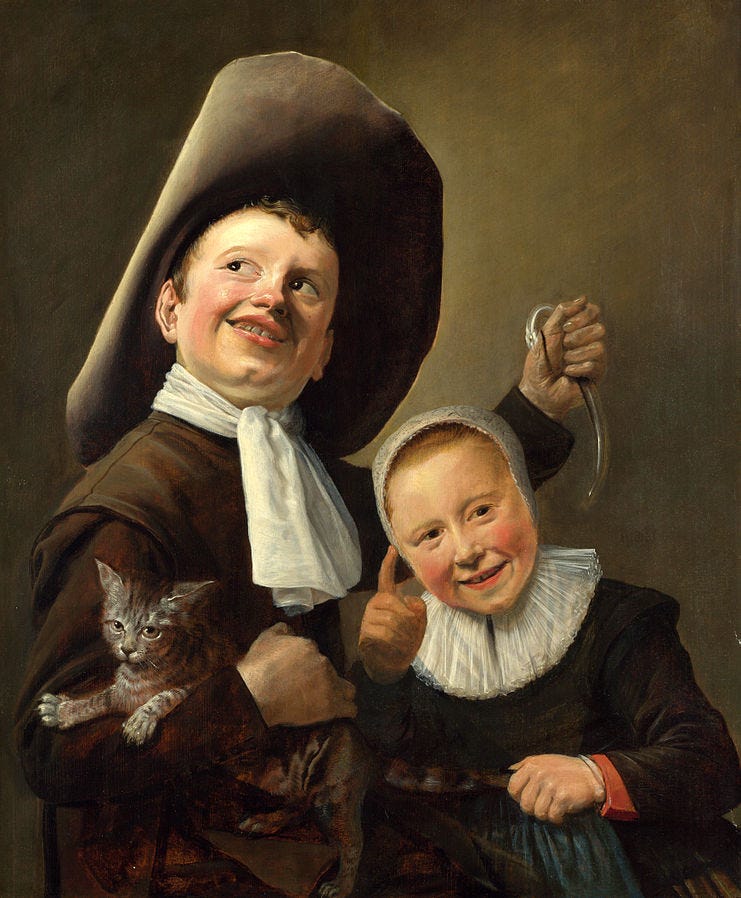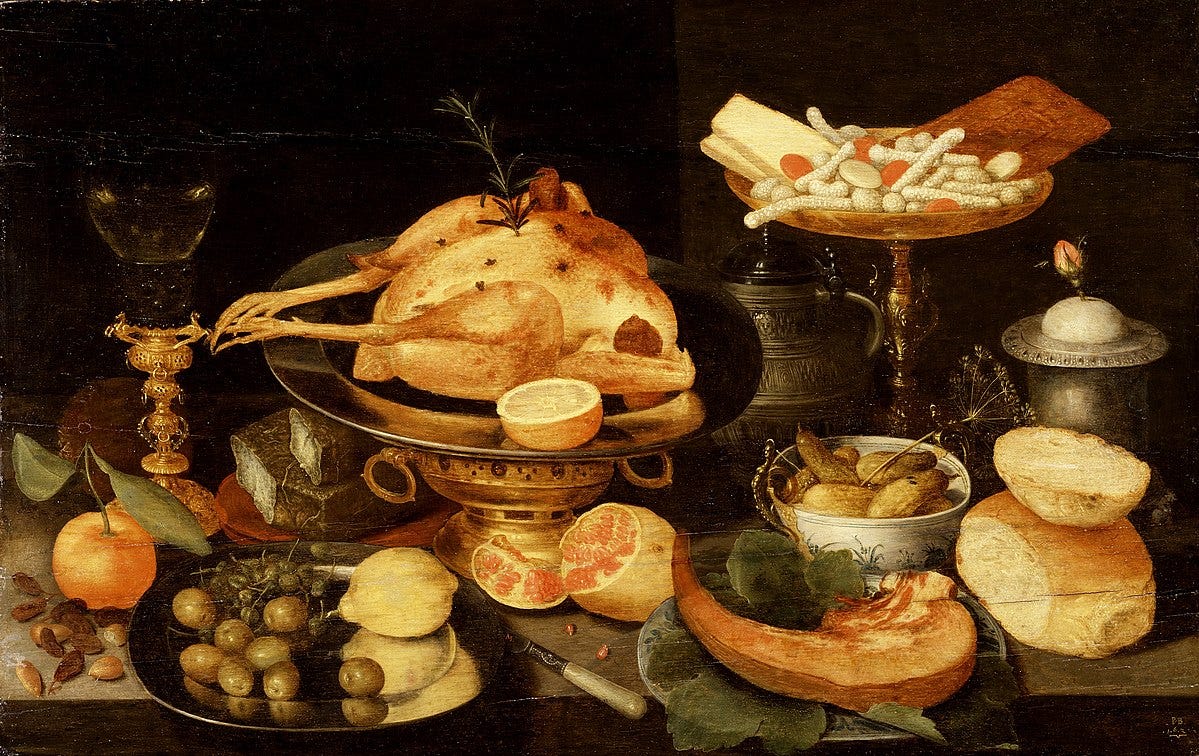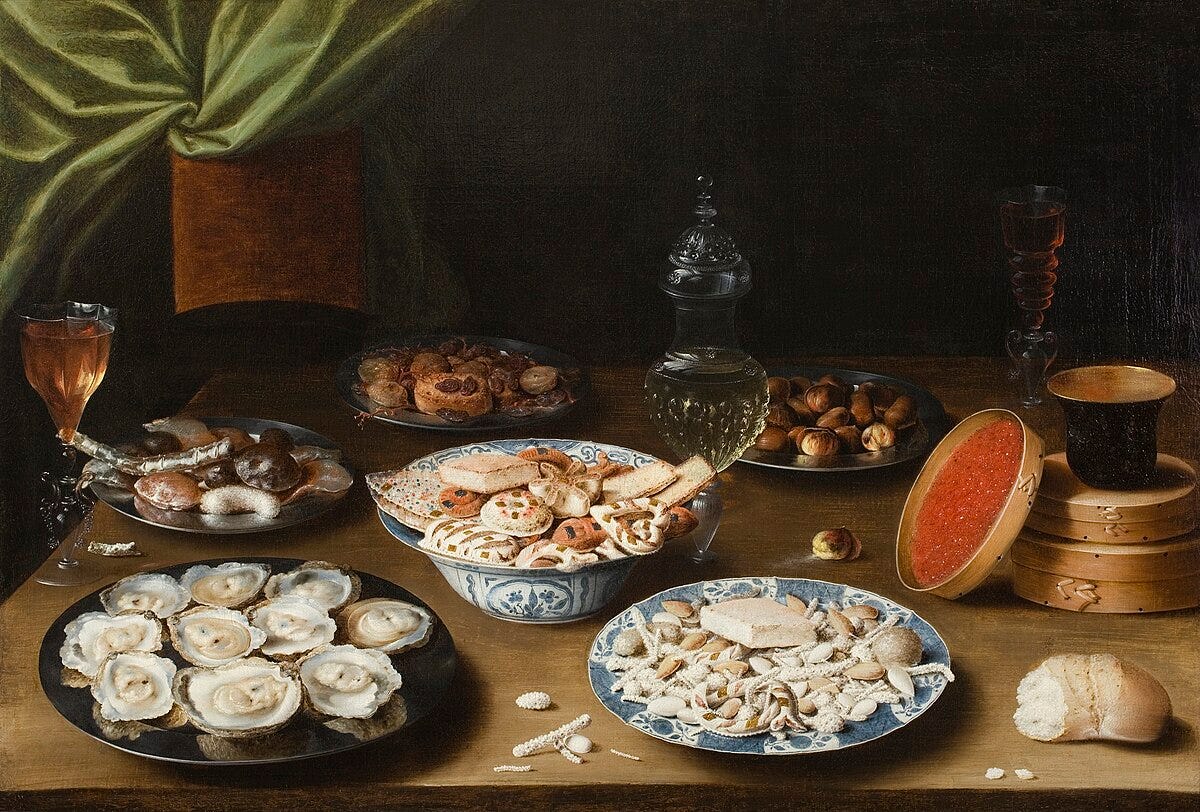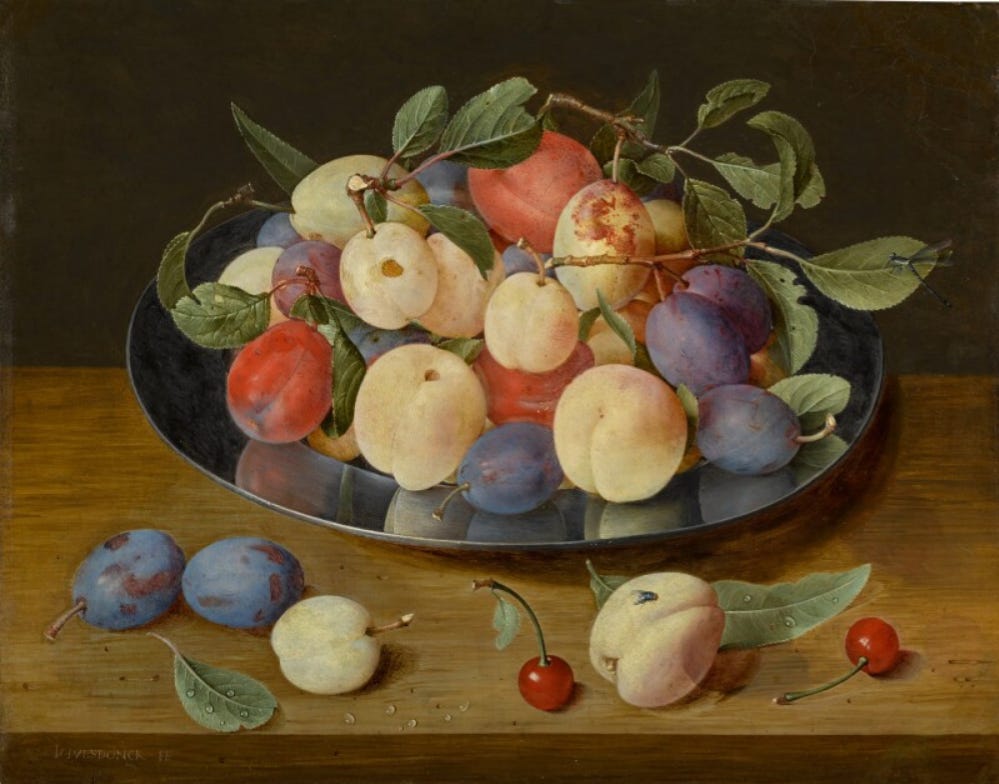The Eels and the Boys
‘Send Thurston up!’
The Plums of this country
Over the last three weeks, the culinary situation has been very poor - a little wine here, a little beer there and a few almonds to nibble on. A capon’s leg and plums for Cromwell at the dinner with Cranmer.
Not even (and I think this is unforgivable! Hilary, how could you!) from the last1 dinner between Cromwell and Chapuys do we have any information about what was served.
Chapuys leaves a huge culinary gap, when he came to dinner there was reliably good food from the kitchen. Well, that's over now.
The Eels and the Boy
In 1530, during Lent, the Italian merchant Bonvisi hosts a dinner for friends and acquaintances. Not only Cromwell is invited, but also More and Chapuys. Cromwell does not expect much from the meal; after all, it is Lent and Cromwell is already sick of fish: ‘for even a rich Italian with an ingenious kitchen cannot find a hundred ways with smoked eel or salt cod.’2 If my chaotic notes don't lead me astray, this was the first mention of eels in the trilogy.
Later, they also make an appearance as a dish: Eels, salted in an almond sauce, baked with orange juice are served at a meal with Cromwell and Chapuys.3
Before the meal, Cromwell went into the kitchen to Thurston and helped out while chatting with Thurston:
‘Are you just going to stand talking,’ Thurston says,’ or are you killing those eels for me?…’ Skin them while you’re about it, Thurston says. Thurston to Thomas CromwellWith what I know now these lines4 take on a very dark meaning. The eels and the words, re-reading this paragraph they remind me immediately of what young Cromwell said5 to the Eel boy:
‘I’ll skin and salt you and fry you in a pan.’ Thomas Cromwell to the Eel boyA Boy and a Girl with a Cat and an Eel by Judith Leyster, 1635
That's a good example why Mantel fascinates me so much. It's random, these lines are not a coincidence. They are there, because it's what she wanted. She weaves this fine web of a story in which many things are cleverly interwoven and there's nothing forced or contrived about it. The books seem to be written fluidly as if in one piece and yet they are so profound and there is so much thinking behind it. I am in absolute awe of Mantel. I loved her writing before this slow-read, now I worship her.
And what Cromwell says6 to Mark Smeaton here is another echo that is remotely reminiscent of the terrible story of the eel boy:
‘Mark, if you stand here there like a landed fish I shall have you filleted and fried.’ Thomas Cromwell to Mark SmeatonFor those of you who want to know more about eels here’s more including old recipes (but I think we've all lost our appetite):
https://www.medieval.eu/recipes-for-medieval-eels/
‘Send Thurston up!’
The king orders a dinner. A feast. But if you have Gardiner sitting at the table, every dinner is a complete disaster in terms of atmosphere. Even if my dear Thurston had cooked culinary marvels, you don't stand a chance as a host with your feast. Gardiner is the kind of person who doesn't even have to say anything to spread a bad mood, he just radiates it. Unfortunately, he's also talking at this dinner. It couldn't get any worse.
Still Life with a Meal by Peter Benoit, c. 1620
Although I have to say, Thurston isn't really inspired anyway, he probably thought, why bother, they're at each other's throats, nobody will care about my food anyway: We have capons for dinner again (we already had them at the dinner with Cranmer).
But at least they didn't snatch the knives from the serving boys when the boys cut up the capons and filleted each other. So the dinner didn't actually go t h a t badly. ‘They sit glaring at each other over the ginger comfit.’ Almost a peaceful end when you consider that Gardiner is also sitting there.
Still Life with Sweetmeats by Osias Beert, c. 1610
The Plums in this country
Cromwell loves his orchard, and here we can find out more about fruit grower Thomas, who has a particular fondness for plums. ‘He used to think that the plums in this country weren’t good enough, and so he has reformed them, grafting scion to rootstock.’
If only the country could be so easily reformed, he will probably often think to himself. Now he has plums from July to late autumn, in many varieties, different in color, size and taste. Perhaps the secret of his success is that here he allows for variation and diversity…
Still life of plums and peaches on a pewter plate, with plums, a peach and cherries, all on a table by Jacob van Hulsdonck, around 1625
If you want to read about more about plums in Tudor times (includes a recipe for a Tudor plum tart):
https://thetudortravelguide.com/tudor-plum-tart/
I don’t think they see each other again?
Wolf Hall, Chapter Three-Card Trick, page 188
The Mirror and the Light, Chapter Salvage, page 51
The Mirror and the Light, Chapter Salvage, page 51
The Mirror and the Light, Chapter Ascension Day, page 659
Wolf Hall, Chapter The Map of Christendom, page 598








We have eels from page one. “What are you, an eel?” I am scared of eels.
Of course! Thank you for drawing our attention to the scene with Thurston and the bucket of eels. And to think as well that we have had so many Lenten suppers, where fish have eyed us accusingly from the plate.